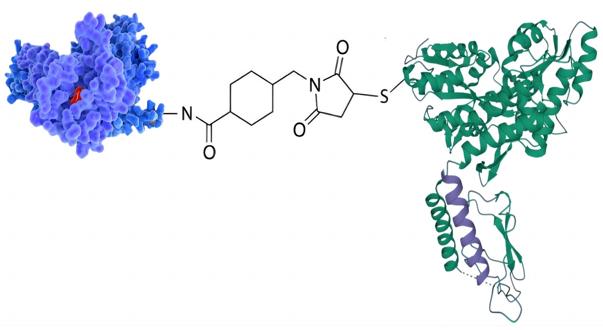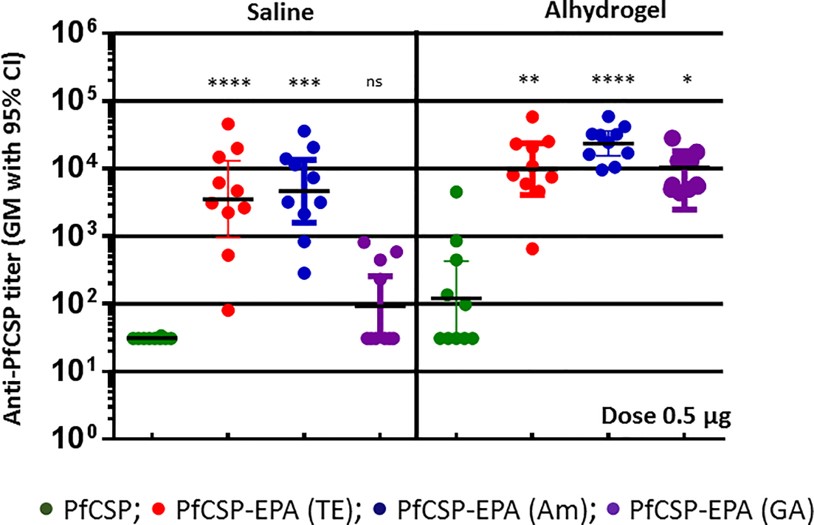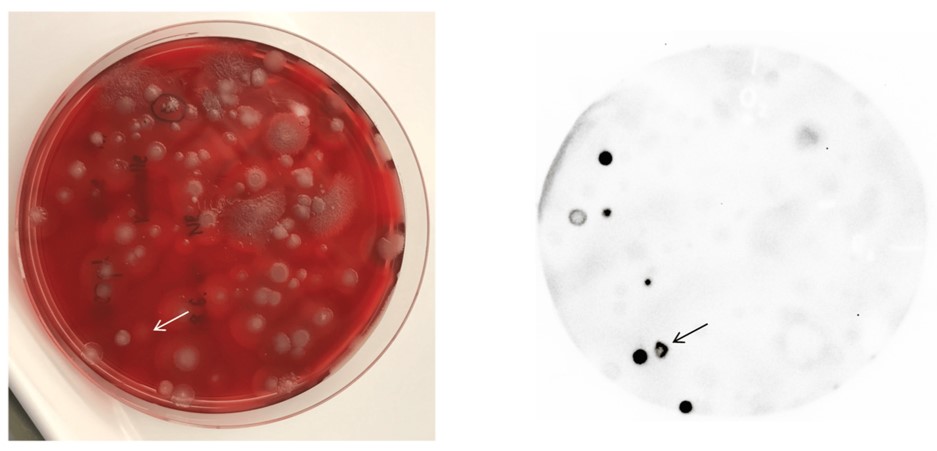Creative Biolabs offers a spectrum of protein conjugation services to a worldwide clientele. Leveraging cutting-edge technology and decades of expertise, we empower your research and development by precisely linking proteins to diverse molecules. We deliver highly stable, functional bioconjugates, accelerating your breakthroughs in research.
Introduction to Protein Conjugation and Methods
Protein conjugation is a sophisticated chemical process that involves the covalent attachment of a protein to another molecule, known as a payload or ligand. This precise molecular alliance results in a "bioconjugate" endowed with enhanced or novel functionalities, critical for myriad applications in biotechnology and biomedicine. The ability to precisely control these linkages is fundamental to unlocking new scientific possibilities.
Typically, protein coupling is achieved through the use of crosslinking agents, a process wherein two or more molecules are covalently bonded together. These agents, containing multiple reactive ends, facilitate chemical attachment to specific functional groups on proteins or other molecules. Protein crosslinkers fall into three primary categories: homologous, heterogenic, and photoreactive variants.
-
Homologous crosslinkers: Possess identical reactive groups on both ends, suitable for linking molecules with similar functional groups.
-
Heterogenic crosslinkers: Feature distinct reactive groups, enabling the coupling of molecules with different functional groups, thereby offering greater versatility.
-
Photoreactive crosslinkers: Remain inert until exposed to UV light, allowing for light-controlled, site-specific conjugation.
Commonly used crosslinkers, such as EDC (for carboxyl-amine linking), sulfo-NHS (for amine-reactive linking), SMCC (for thiol-amine linking), and maleimides (for thiol-reactive linking), are selected based on the specific functional groups available on the molecules to be conjugated and the desired linkage stability.
 Fig.1 SMCC crosslinking agent.
Fig.1 SMCC crosslinking agent.
Protein Conjugation Services Provided by Creative Biolabs
At Creative Biolabs, our comprehensive protein conjugation services are meticulously designed to provide optimal results, carefully selecting the most suitable crosslinking agent to match the unique properties of your protein, thereby enhancing the stability and functional integrity of the resulting bioconjugate. Our specific services encompass a wide array of specialized conjugations, ensuring we meet diverse research and development needs.
Service details include, but are not limited to:
Antibody/Antigen-Enzyme Conjugation
Our expertise includes the robust conjugation of antibodies or antigens to various substrate enzymes, creating highly sensitive detection reagents crucial for immunoassays. Our diverse selection of enzymes includes, but is exclusively limited to:
-
Horseradish peroxidase (HRP): Widely favored for its high turnover rate and robust signal generation in colorimetric, chemiluminescent, and fluorescent detection systems.
-
Alkaline phosphatase (AP): Another popular enzyme, offering excellent sensitivity and stability, particularly useful in enzyme immunoassays for a wide range of substrates.
-
Streptavidin: Although not an enzyme itself, its extraordinarily strong affinity for biotin makes it indispensable for amplification strategies in diagnostic assays, often conjugated to enzymes or fluorophores.
-
β-Galactosidase: A large, stable enzyme frequently used in reporter assays and enzyme immunoassays due to its distinct chromogenic or fluorogenic substrates.
Carrier Protein Conjugation
This conjugation is predominantly utilized for the preparation of customized antibodies against small molecules (haptens) or weakly immunogenic peptides. Carrier proteins enhance the immunogenicity of these smaller molecules, ensuring a robust immune response. Our primary carrier proteins include:
-
KLH (Keyhole Limpet Hemocyanin): Esteemed for its high molecular weight and complex structure, KLH exhibits superior immunogenicity compared to BSA, making it the most frequently selected carrier protein for generating strong antibody responses.
-
BSA (Bovine Serum Albumin): Recognized as one of the most stable and soluble albumins, BSA is a common choice. However, its widespread use as a blocking agent in various immunoassays can sometimes lead to false positive results, a consideration in assay development.
-
OVA (Ovalbumin): Often employed as a secondary or alternative carrier protein, particularly useful in validating that the generated antibody specifically targets the hapten or peptide and not the carrier protein itself, thus ensuring specificity.
Protein-Polyethylene Glycol (PEG) Conjugation
PEGylation involves covalently attaching polyethylene glycol polymers to proteins. This process significantly improves the therapeutic profile of proteins by extending their circulatory half-life, reducing immunogenicity, and enhancing solubility, which is paramount for developing next-generation biopharmaceuticals.
Protein-Macrocyclic Metal Chelator Conjugation
This capability involves conjugating proteins to specific chelating agents capable of binding metal ions. Such conjugates are crucial for developing radiolabeled probes for PET imaging, SPECT imaging, or targeted radionuclide therapy, enabling precise in vivo molecular visualization and intervention.
Protein-Nucleic Acid Conjugation
We provide specialized services for linking proteins to oligonucleotides or other nucleic acid constructs. These bioconjugates are instrumental in developing sophisticated molecular diagnostics, gene delivery systems, and advanced tools for studying protein-nucleic acid interactions.
Protein-Glycopolymer Conjugation
This service focuses on the precise attachment of proteins to carbohydrate-based polymers. Such conjugates are highly valuable for applications requiring enhanced biocompatibility, modified pharmacokinetic profiles, or specific targeting based on glycan-receptor interactions, frequently employed in drug delivery and vaccine formulation to improve stability and reduce immunogenicity.
Protein-Peptide Conjugation
Our expertise extends to forming stable covalent bonds between proteins and specific peptides. This service is particularly valuable for creating multivalent vaccines, designing novel protein-protein interaction mimetics, or developing sophisticated biosensors for targeted molecular detection.
Protein Conjugation Applications
Advanced Diagnostics
Integral to immunoassays like ELISA and lateral flow tests, enabling high-sensitivity detection of disease biomarkers and pathogens. Conjugates with enzymes, fluorophores, or biotin amplify signals, enhancing diagnostic precision.
Targeted Therapeutics
Crucial for developing Antibody-Drug Conjugates (ADCs) that deliver potent cytotoxic drugs directly to cancer cells, minimizing systemic toxicity. Protein-polymer conjugates also extend the therapeutic half-life and improve drug bioavailability.
Cutting-edge Research Tools
Essential for creating fluorescent probes for cell imaging, flow cytometry, and Western blot analysis, allowing for precise visualization and quantification of cellular components and pathways.
Vaccine Development
Facilitating the creation of conjugate vaccines by linking haptens or weak antigens to immunogenic carrier proteins, significantly boosting the immune response.
Biosensor Development
Enabling the immobilization of proteins onto sensor surfaces for highly sensitive and specific detection of analytes in real-time.
Published Data
1. Protein-Protein Conjugation for Improved Malaria Antigen Delivery and Enhanced Immune Response
 Fig.2 Anti-CSP antibody titer of EPA conjugates of PfCSP synthesized.1
Fig.2 Anti-CSP antibody titer of EPA conjugates of PfCSP synthesized.1
This study showed that protein-protein conjugation was an effective method to improve the immune response to weakly immunogenic antigens. In this study, researchers investigated the immunogenicity of three malaria antigens (PfCSP, Pfs25, and Pfs230D1) when conjugated to three distinct protein carriers (EPA, TT, and CRM197) to assess how the conjugation influenced the immune response. In all cases, these antigens upon conjugation to a carrier protein showed significant increases immunogenicity compared to unconjugated antigens. Besides, they tested four different conjugation chemistries to find that conjugates created using different chemistries or carriers displayed no significant variation in immunogenicity against the conjugated antigens. All of these show that protein-protein conjugation is a widely applicable approach, offering a reliable and flexible platform for developing vaccines.
2. Enzyme-Linked Phage Receptor Binding Protein for Pathogens Detection
 Fig.3 Colony lift and blot assay with luminogenic reporter probe NanoLuc-RBP conjugation.2
Fig.3 Colony lift and blot assay with luminogenic reporter probe NanoLuc-RBP conjugation.2
Recombinant receptor binding proteins (RBPs) have been employed for pathogen detection, often engineered as fusions with reporter enzymes or fluorescent tags. In this paper, researchers utilized the enzyme-linked phage receptor binding protein assays (ELPRA) which were based on the conjugation of bacteriophage RBPs with luminogenic reporter or peroxidase, facilitating the identification of B. anthracis. Researchers introduced two new RBP-based identification assays which were demonstrated to efficiently identify vegetative cells of B. anthracis with minimal processing time, offering potential to enhance or validate pathogen detection through molecular methods like PCR.
Features of Our Services
-
Personalized: Both standard and custom-built services to meet our client's requirements.
-
Comprehensive: Full-scale protein conjugation services.
-
Quickly: Short turnaround time with advanced technologies.
-
Cost-effective: Competitive price with the best quality.
-
Professionally: Performed by experienced conjugation staffs.
Q&A
-
Q: How do you ensure the stability and activity of the conjugated protein?
A: We prioritize stability and activity by carefully selecting crosslinking chemistry, optimizing reaction conditions, and using proprietary buffer systems to prevent denaturation. Rigorous purification removes unwanted byproducts, significantly contributing to long-term stability and preserved biological function.
-
Q: Can you perform site-specific protein conjugation?
A: Yes, absolutely. Beyond common random conjugation, we excel in site-specific techniques. This involves leveraging engineered cysteine residues or enzymatic methods. Site-specific conjugation offers precise control over homogeneity and orientation, leading to predictable performance in sensitive applications.
-
Q: What quality control (QC) analyses do you perform on final conjugates?
A: Our comprehensive QC includes UV-Vis spectroscopy for concentration, SDS-PAGE for purity, HPLC/FPLC for homogeneity, and mass spectrometry for confirmation. We also perform functional assays tailored to the conjugate's intended application to verify retained biological activity.
-
Q: Can you help optimize my existing conjugation protocol?
A: Certainly. We'll thoroughly review your current protocol to identify areas for enhancement. We then implement a systematic approach to optimize reaction conditions, purification steps, and analytical methods. Our goal is to transform your existing process into a robust and reproducible one.
-
Q: What information do I need to provide for a service quote?
A: To provide an accurate quote, please detail your project. This includes the protein's nature (source, purity, concentration), the molecule to be conjugated (structure, desired ratio), the bioconjugate's intended application, and any specific purity or activity requirements. Our online questionnaire or direct consultation helps gather these details.
-
Q: Do you provide purification services for conjugated products?
A: Yes, purification is a critical part of our services. We utilize advanced chromatographic techniques like size exclusion (SEC), ion exchange (IEC), and affinity chromatography to isolate the desired conjugate from unconjugated reagents and byproducts. This ensures delivery of a highly pure and functional product.
Creative Biolabs not only offers protein-protein conjugation services but also extends a range of antigen and antibody conjugation services to clientele worldwide. If our services pique your interest, don't hesitate to reach out and outline your conjugation project. We'll swiftly furnish you with estimates for both turnaround time and pricing.
References
-
Scaria, Puthupparampil V., et al. "Protein-protein conjugate nanoparticles for malaria antigen delivery and enhanced immunogenicity." PLoS One 12.12 (2017): e0190312. Distributed under Open Access license CC0 1.0.
-
Braun, Peter, et al. "Enzyme-linked phage receptor binding protein assays (ELPRA) enable identification of Bacillus anthracis colonies." Viruses 13.8 (2021): 1462. Distributed under Open Access license CC BY 4.0, without modification.
For Research Use Only.
 Fig.1 SMCC crosslinking agent.
Fig.1 SMCC crosslinking agent.
 Fig.2 Anti-CSP antibody titer of EPA conjugates of PfCSP synthesized.1
Fig.2 Anti-CSP antibody titer of EPA conjugates of PfCSP synthesized.1
 Fig.3 Colony lift and blot assay with luminogenic reporter probe NanoLuc-RBP conjugation.2
Fig.3 Colony lift and blot assay with luminogenic reporter probe NanoLuc-RBP conjugation.2